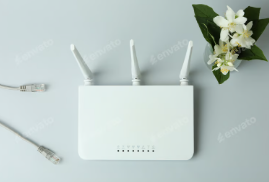Routers rented from ISPs can be perceived as slower for several reasons:
- Basic Models: ISPs often provide basic or outdated router models that may not support the latest Wi-Fi standards (like Wi-Fi 6), leading to lower speeds and performance.
- Shared Bandwidth: If multiple users in your area are sharing the same network resources, it could affect performance. ISPs may also throttle access during peak times.
- Limited Features: Rented routers may lack advanced features such as Quality of Service (QoS) settings, which prioritize bandwidth for specific applications, or advanced security features.
- Firmware Limitations: ISPs may not regularly update the firmware of rented routers, which can affect performance and security. Users also have limited control over firmware updates.
- Placement and Interference: ISP-provided routers are often not optimally placed in homes. Physical obstacles and interference from other devices can reduce performance.
- Network Congestion: If many devices are connected to the rented router, it may struggle to provide optimal speeds, especially if multiple devices are streaming or gaming simultaneously.
If you’re experiencing slow speeds with your rented router, consider upgrading to a better model that suits your needs or reaching out to your ISP for potential updates or options.
